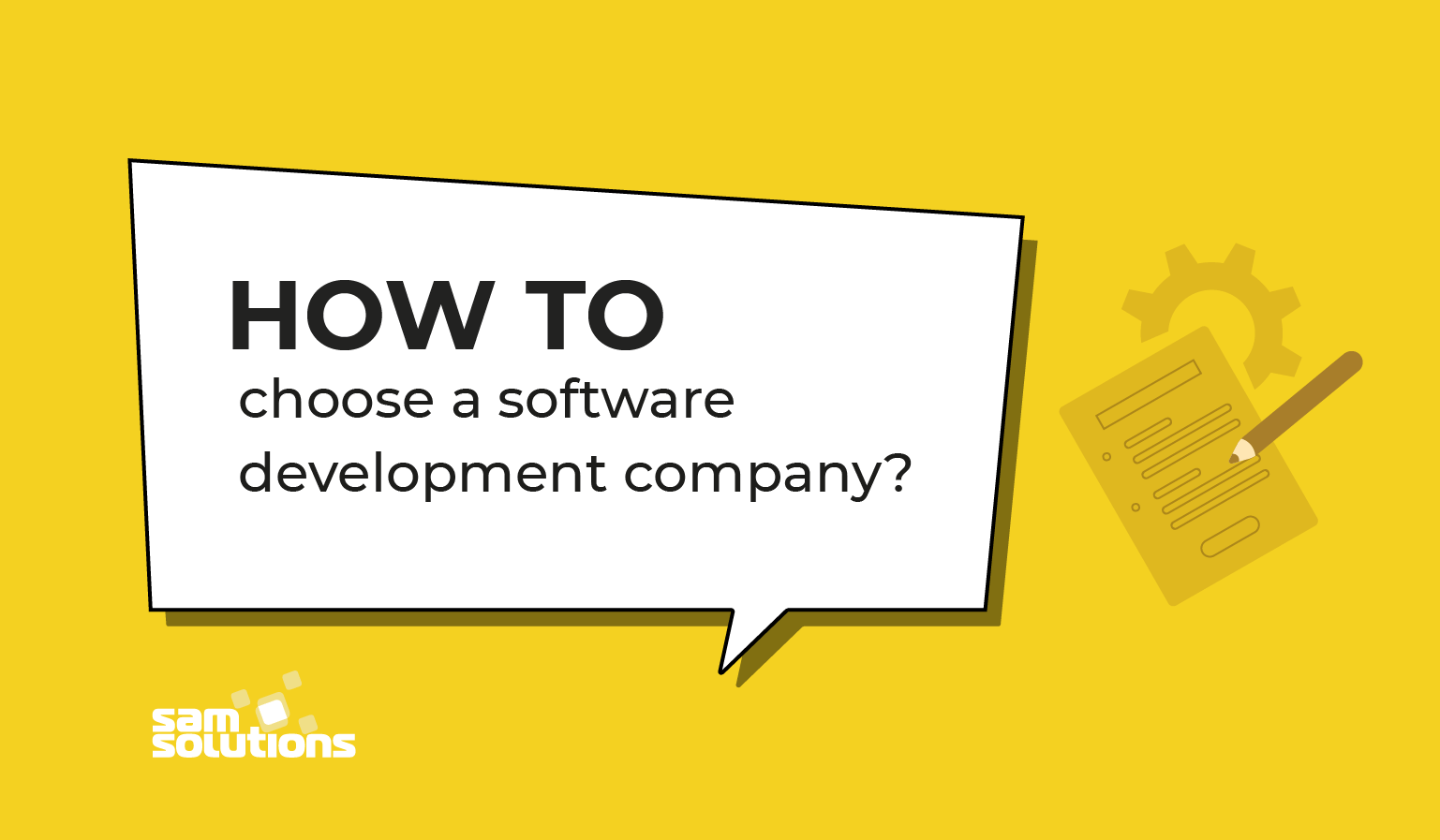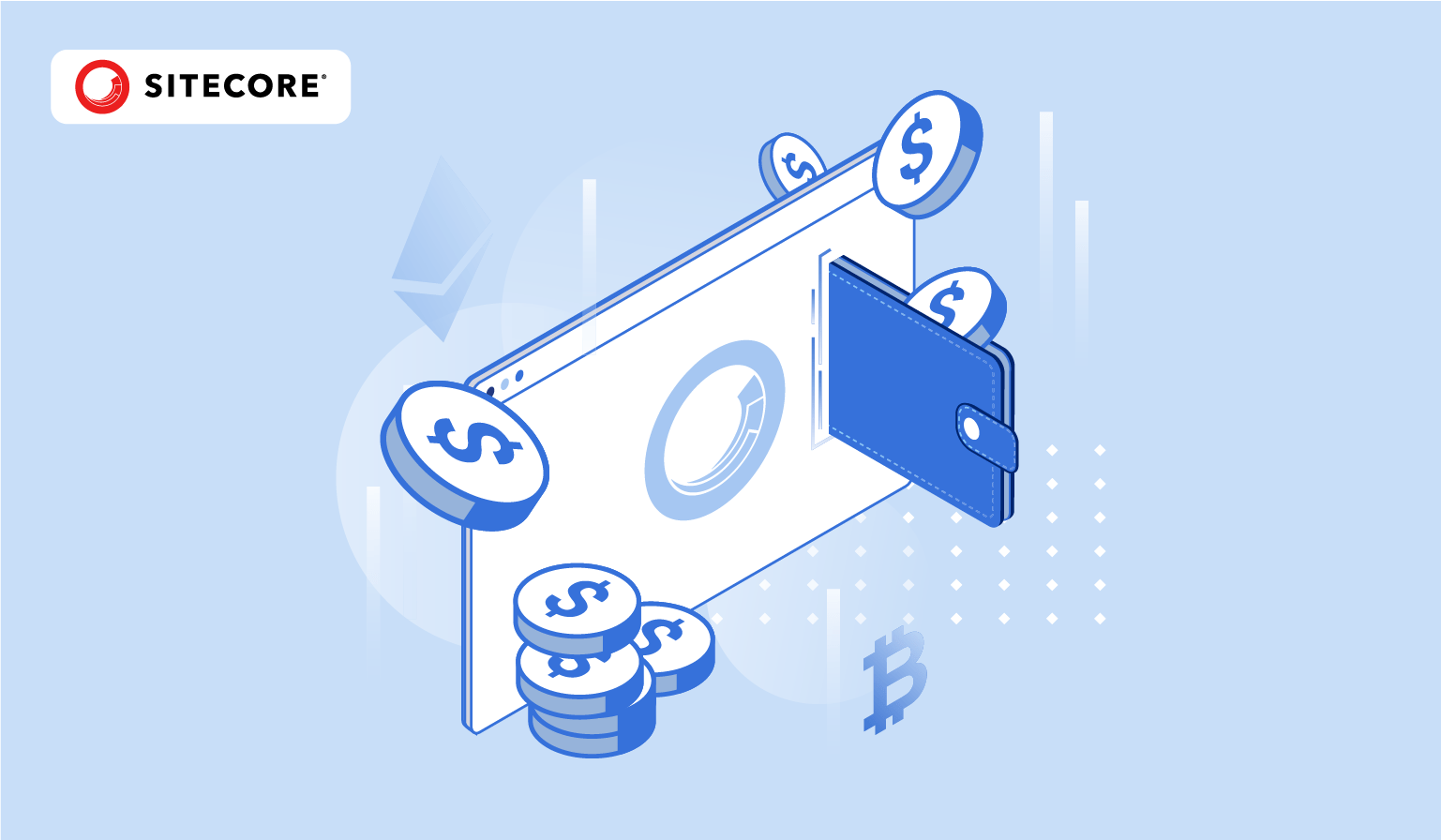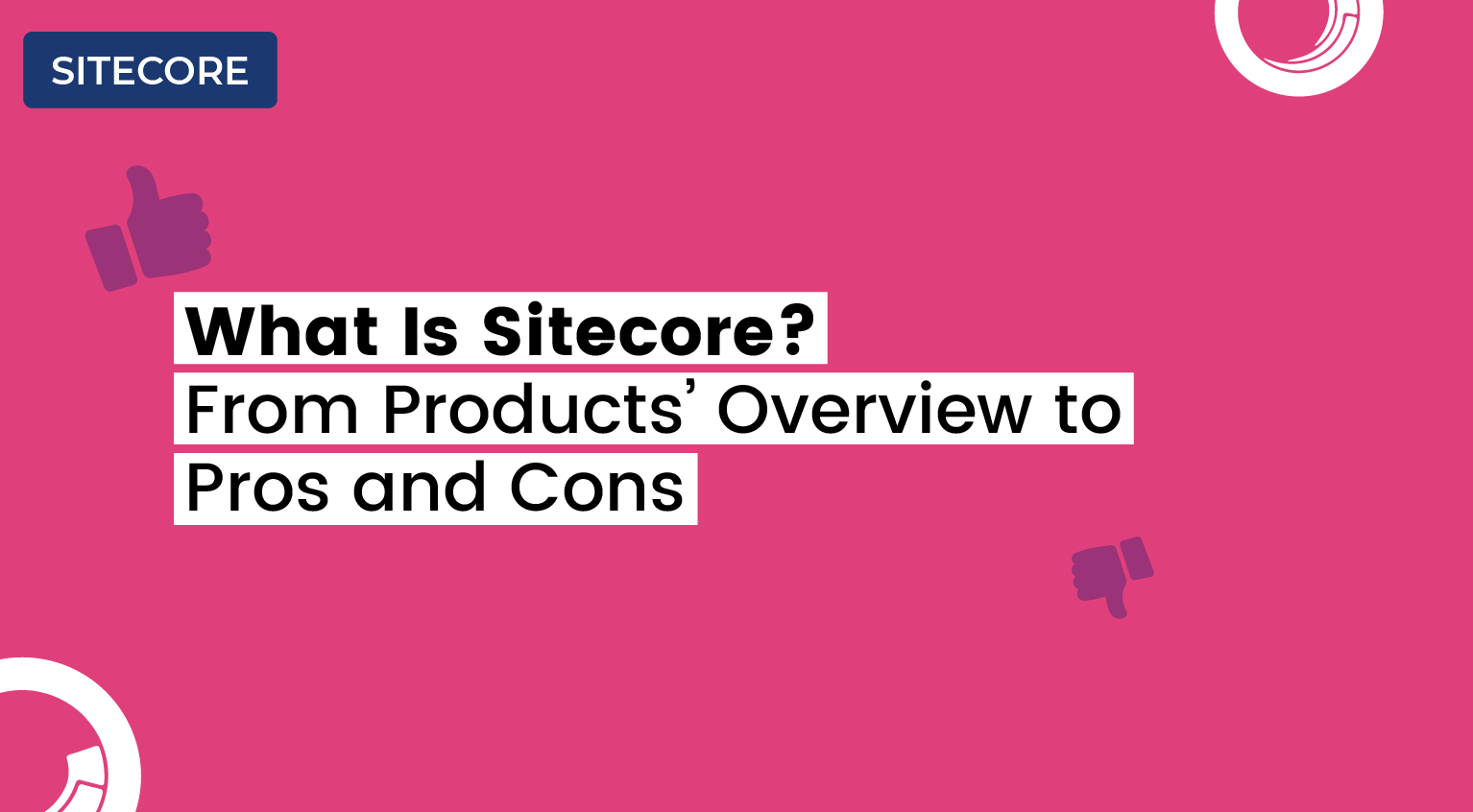
Sitecore is a provider of powerful digital experience platforms that let businesses manage and deliver content. It drives numerous globally recognized organizations’ websites and enables leading companies with complex content operations to engage their audiences effectively at scale.
Sitecore offers much more than a traditional content management system (CMS) by managing the entire lifecycle of digital assets. It provides a systematic approach to the process of creating, editing, integrating, previewing, and publishing digital assets. The platform seamlessly connects with existing systems, gathers relevant data, manages content, and delivers ultra-personalized, fully omnichannel experiences.
In this article, let’s delve deeper into how Sitecore works, explore its features, and analyze its strengths and weaknesses.
How Sitecore Works
Since its founding in 2001, Sitecore has leveraged the .NET framework’s robustness, adaptability, and security. Supporting C#, ASP.NET, and JavaScript, it provides a wide range of tools and APIs for experts in Sitecore development services to extend and customize the platform with custom modules, connectors, and integrations.
The platform follows a modular architecture consisting of several components that work together to deliver a seamless digital experience. The core component is the Sitecore Content Management System (CMS), famous for mirroring a traditional Windows desktop UI. This intuitive design accelerates user onboarding and enables effective use of Sitecore’s capabilities to drive marketing objectives.
But Sitecore’s prowess goes beyond a conventional CMS by introducing another key component – Digital Experience Platform (DXP). It is a comprehensive suite of tools for facilitating the creation of smooth, personalized, omnichannel digital journeys. Sitecore DXP can collect customer interaction data from both digital and offline sources and empower businesses to continuously test, refine, and personalize content, continuously enhancing its relevance and impact.
Differences Between Sitecore XP, XM, and XC
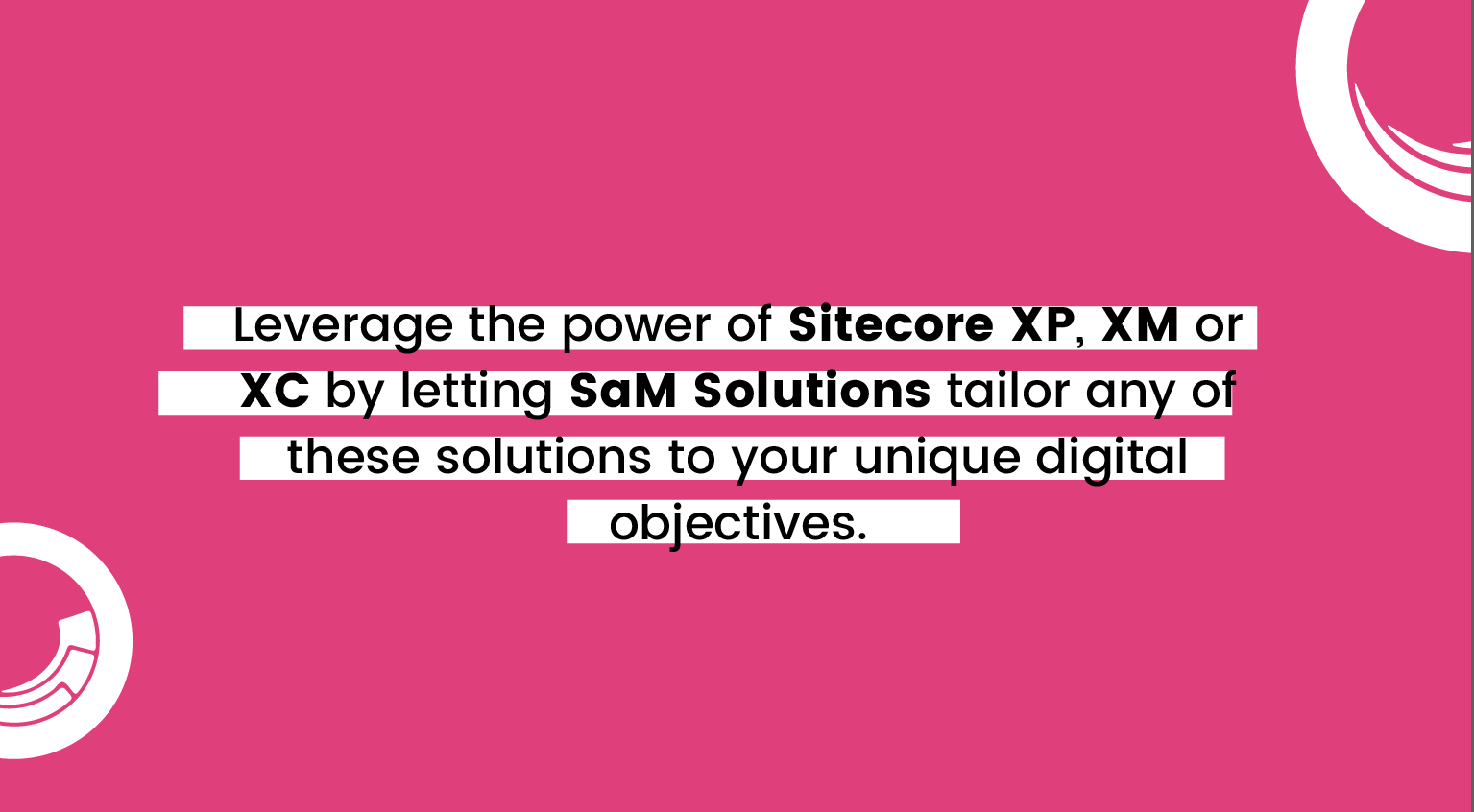
While first discovering Sitecore, you can often stumble upon the terms “XP”, “XM”, and “XC”. To choose the right type of Sitecore solution for your business, it’s crucial to understand the distinct capabilities of these product types and how they intertwine within the Sitecore universe.
Sitecore Experience Manager (XM)
Sitecore Experience Manager (XM) is the platform’s backbone otherwise known as the Content Management System component that we talked about earlier. It’s where all the magic happens — crafting, regulating, and disseminating content across your website or even a cluster of websites.
Sitecore XM helps to manage multiple websites, multilingual content, and content delivery across devices and channels. It’s popular for its WYSIWYG (What You See Is What You Get) editor, known as Experience Editor, allowing users to see content as it would appear to a visitor.
XM is particularly appealing for organizations contemplating a migration to Sitecore’s SaaS offering – Sitecore XM Cloud, or those desiring a streamlined, less resource-intensive setup. By moving to Sitecore’s composable architecture, organizations can add features as per their readiness, optimizing resources and minimizing unnecessary expenditure.
Sitecore Experience Platform (XP)
Sitecore XP is also known as Digital Marketing System (DMS), which brings together CMS capabilities and cutting-edge marketing automation tools. This suite includes personalization, analytics, A/B testing, launching marketing campaigns, gaining deep insights into customer behavior, and a plethora of other features for omnichannel marketing purposes, all provided by the Digital Experience Platform (DXP) component that we mentioned above.
XP is best suited for organizations seeking integrated solutions and those inclined to host on-premises rather than in the cloud. Its comprehensive features empower businesses to optimize customer experiences, drive engagement, and achieve their marketing goals effectively.
Sitecore Experience Commerce (XC)
Sitecore Experience Commerce provides merchants with the ability to deliver fully personalized shopping journeys and covers all stages – from browsing and purchasing to post-transaction interactions. Simply put, it spans multiple digital touchpoints and creates an ultra-personalized, efficient, and profitable ecommerce environment.
This holistic platform simplifies the management of customer accounts, order processing, and content administration. You gain the ability to adjust promotions and pricing in real-time, manage stock and inventory, and employ marketing automation for optimum customer engagement. With Sitecore Experience Commerce, you’re equipped with a comprehensive suite of resources and tools to effectively manage your entire digital retail presence.
What Are Some of the Best Sitecore Features?
Sitecore stands as a long-standing leader in the realm of digital experience platforms, boasting a robust set of features that revolutionize customer engagement and interaction. It’s these tools that empower brands to deliver personalized, integrated experiences that captivate and retain audiences.
Here are some of the noteworthy features Sitecore offers:
- Actionable Engagement Analytics – insightful analytics that measure and evaluate the intricacies of customer interactions and site navigation patterns.
- Location-Based Personalization – advanced geolocation capabilities that tailor content to each user’s geographic location.
- Holistic Campaign Monitoring – tracking of marketing campaigns’ performance across all channels and compiling customer activities in one place.
- Print-Ready Marketing Collateral – easy production of print-ready materials that adhere to your branding guidelines.
- Global Reach with Multilingual Support – built-in multilingual translation capabilities.
- Testing for Optimal Performance – A/B and multivariate testing that helps you optimize content and traffic source performance.
- Trigger-Based Marketing Automation – automated responses to specific customer actions.
This is just the tip of the iceberg. If you want to learn more about Sitecore’s features and their benefits for your business, feel free to contact SaM Solutions’ Sitecore consultants.
Sitecore Development Tools
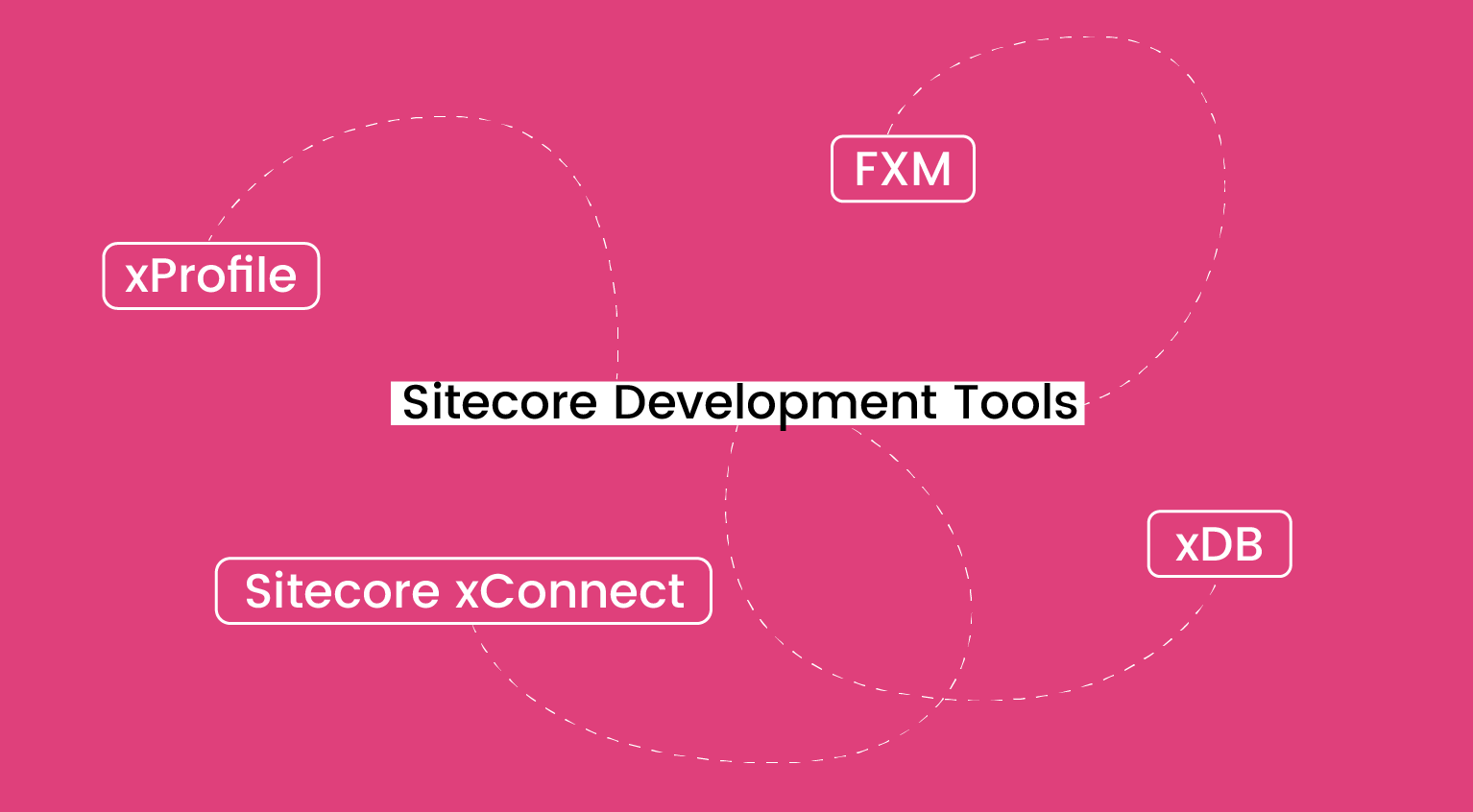
Alongside the features available to Sitecore users, the platform offers a comprehensive set of tools designed specifically for Sitecore development teams. When installed and properly configured on your Sitecore instance by a professional development vendor, these tools can significantly expand Sitecore functionality, introducing even more possibilities to users.
Some of Sitecore’s tools include:
- Experience Database (xDB) – consolidates your customer experience data, including interactions from CRM and other systems, and builds a unified view of each customer’s journey.
- Experience Profile (xProfile) – synthesizes individual customer profiles, which evolve over time, to provide detailed insights into customers’ preferences, behaviors, and buying habits.
- Sitecore xConnect – uses APIs to facilitate data synchronization and retrieval across Sitecore and other marketing or sales platforms, such as Salesforce or Microsoft Dynamics 365.
- Federated Experience Manager (FXM) – enables extending certain Sitecore functionalities to other websites and solutions, ensuring a consistent customer experience across various platforms.
Sitecore Advantages & Disadvantages
We’ve discussed various types and possibilities of Sitecore solutions. Now, let’s delve into the advantages and potential drawbacks of the platform, uncovering its strengths and the challenges it may present.
Sitecore Advantages
- Versatile functionality
Sitecore has evolved from a simple CMS to a robust digital experience platform. It now boasts such advanced features as a sophisticated commerce storefront, marketing automation, personalization, and in-depth analytics. - Use of the latest tech
One of the key reasons why businesses abandon other platforms and migrate to Sitecore is Sitecore’s active support of Jamstack and MACH approaches. The platform is microservices-based, API-first, cloud-friendly, and enables headless content delivery via JavaScript and HTML markup. - Flexible scalability
Sitecore offers scalability options, caching mechanisms, and performance optimization features to ensure fast page load times, high availability, and smooth user experiences. With this platform, developers can enhance performance, scale vertically or horizontally, or operate in a standalone environment based on specific needs. - Omnichannel experience
Sitecore enables consistent and seamless experiences across multiple channels, including websites, mobile apps, social media, email, and more. This ensures a unified brand experience and improves customer satisfaction. - Easy customization and integration
Sitecore offers a developer-friendly environment with a robust set of tools, APIs, and customization options. Its built-in dependency injections allow technical experts to modify classes, tweak default features, add custom functionalities, and perform seamless integrations with other techs. (Providers of React development services, for instance, would have no trouble integrating their React components with a Sitecore instance.) - Tight security
Sitecore provides configurations that align with the latest GDPR regulations, ensuring data privacy. It provides comprehensive technical guidelines for managing security during Sitecore development. - Rich deployment choices
Organizations can select between on-premises or cloud deployment based on their requirements. Options include a fully managed environment on Microsoft Azure-hosted infrastructure or a self-managed cloud deployment. - Large and strong community
Sitecore has a vibrant community of developers, partners, and users, who provide access to resources, share knowledge, and help each other resolve issues. The availability of documentation, forums, and training programs ensures assistance and guidance when needed.
Sitecore Disadvantages
- High costs
Despite customizable licensing options, Sitecore is one of the costlier CMS platforms compared to its competitors. It suits large organizations that aren’t budget-constrained and require additional functionality, but it may be pricey for smaller companies with basic needs. Check out our blog on Sitecore pricing to know more about the implied costs of this solution. - Steep learning curve
Sitecore offers paid training programs for developers, marketers, and commerce managers. However, as a specialized development and marketing skill, the learning curve can be steep. Each developer also needs to obtain Sitecore Certification, costing hundreds of dollars per registration, which enhances the transition process’s complexity. - Limited support
While Sitecore standard support is included in subscriptions, 24/7 priority assistance incurs extra charges. What’s more, even standard support is only free of charge for the first 3 years after a Sitecore’s version release and implies additional costs later on. In our article on Sitecore support options, we suggest some walkarounds to this drawback and help you reduce support costs. - Scarce developer availability
With Sitecore’s growing popularity, the demand for skilled Sitecore developers has increased. This, combined with the extensive learning process, can make it challenging to find Sitecore developers who meet all the necessary requirements quickly.
Why Hiring a Sitecore Developer Is Beneficial
Hiring Sitecore developers can significantly enhance your Sitecore implementation. Their contribution will enable you to deliver exceptional digital experiences to your customers and bring you a range of benefits, including:
- Cost efficiency
Depending on the outsourcing model and the specific provider you hire, you can save significantly on the cost of Sitecore development services and overhead costs associated with office space, training, and related expenses. - Performance optimization
Sitecore developers can optimize your website’s performance and ensure fast page load times, efficient caching mechanisms, and scalability. They can also provide technical audits that would give you insights on performance improvements, search engine optimization (SEO), and best practices for delivering great UX. - Agility and flexibility
Sitecore developers can adapt to evolving project needs, providing dynamic and adaptable solutions. They are well-versed in Sitecore’s development practices and can utilize best coding practices and development frameworks to deliver high-quality solutions within timelines. With them, you can streamline the development process, set up Sitecore DevOps, and ensure efficient implementation. - Global expertise
By tapping into an international talent pool, you can secure diverse skills for your project and have global experts with in-depth knowledge to handle all the aspects of development, customization, and optimization within the platform. - Integration skills
To properly run your processes, you often need to integrate Sitecore with other systems: CRMs, marketing automation platforms, or ecommerce solutions. Sitecore developers can tackle these integrations, ensure stable data flow and synchronization, as well as enable a cohesive customer experience. - Post-implementation support
Even after project completion, Sitecore developers can provide ongoing support and assistance as your digital platform evolves. They can help with Sitecore upgrades to the latest versions, recommend new features, and ensure compatibility with emerging trends.
Verdict
Sitecore is one of the web’s most comprehensive platforms that not only elevates your digital content management but also enhances user engagement through personalization and data-driven insights. When wielded by the right team of developers and marketers, Sitecore capabilities can substantially amplify your brand’s digital presence.
Consider Sitecore as your path to smarter content management and superior customer experiences, propelling your brand into a brighter future in the digital landscape.

